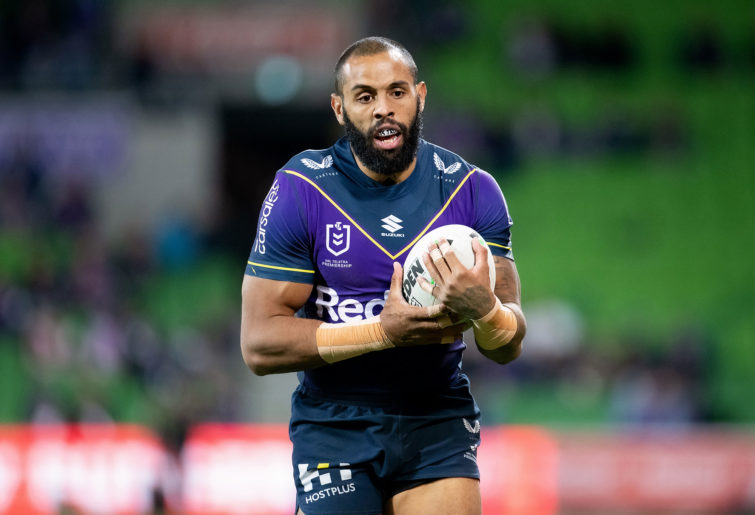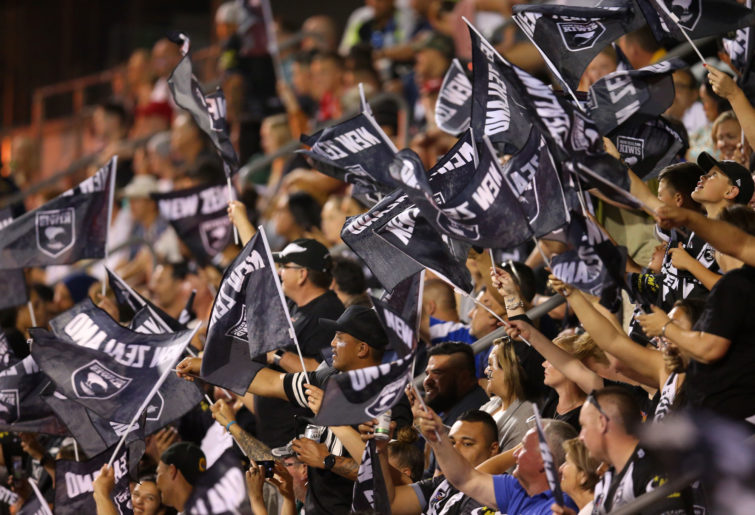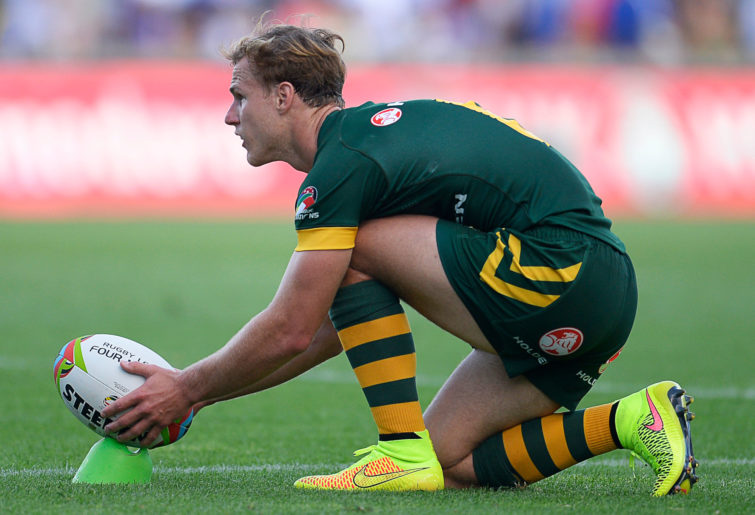Jesse Skiller
new author
Roar Rookie
Opinion
There has been a consistent murmur within the Australian rugby league press recently.
Clubs are unhappy with the Rugby League World Cup and want it postponed.
The commentary in the Australian press has been certain for months. The Rugby League World Cup cannot go forth. It must be postponed.
On the other side of the world there is a seemingly a polar opposite view of the tournament.
The tournament is viable. It has support from the very top. The arrangements in place are too perfect and precarious. Delay would be an immense expense and potentially impossible.
This debate has turned into a full blown shouting match with the announcement that the Rugby League World Cup will be forging ahead with both sides at angry loggerheads.
On the surface the debate seems fairly trivial, especially with the backdrop of the Olympics and the resumption of almost every other international sport.
However, beneath the surface, there is an immense tension between the emerging International Rugby League (IRL) and the long dominant Australian Rugby League Commission (ARLC).
Australian resilience
The surface concern is a concern from the Australian faction is COVID-19 infections, given the rising case count in the UK and the current lockdown in Australia.
If dealt with at face – this concern seems immaterial. International sport has been underway now for months with the aide of effective planning.
Effective quarantine measures have been in dozens of international forums. Australia’s number one Sharks fan and prime minister himself adjourned in the UK not too long ago.
There has been discussion of leave entitlements and players coming into pre-season in February. Presuming that there is no quarantine solution (there have been reports of a resort being arranged for Australian based players). This argument still remains largely academic as pre-season trials don’t necessarily require your best players (given this is only the Kangaroos which are not cosigned) and if it were meaningful for kangaroos to play trial matches the NRL could always move the start of the competition.
Ground bookings in the age of COVID have proven to be infinitely pliable.
More substantially are highlighted concerns about load management. Clubs obviously are concerned with their number one assets, players, and don’t want an additional load in an already.
Players have sacrificed a great deal to allow the competition to continue. In particular the New Zealand Warriors and the Melbourne Storm transplanted themselves to allow the competition to continue last year. This year the entire NRL has moved to Queensland to facilitate the finalisation of the competition.

(Photo by Speed Media/Icon Sportswire via Getty Images)
This load shouldn’t be dismissed and players have publicly spoken about the burden that this has placed on them. This load is greater than a “normal” World Cup year. Many players will not be willing to travel to the UK after such an ordeal and have identified as such.
But these are not the only two considerations. The decision of the ARLC is affected by the motives of the executives and its parts.
Under the hood
The NRL has taken a central role in the organisation of rugby league competition in the world. This can be clearly seen through rule changes which have been effectively dictated to the rest of the world.
The international game provides intrigue to this dynamic. The international game has largely been a sideshow to the main stage of domestic competition (which itself is mainly just the NRL).
Australia dominates the international game through both performance and administration. The organisation of events and matches is often accommodated by and subservient to the NRL competition.
Obviously there is benefit in an international game – however there is a key interest in dominating the international game and orienting it in a way which compliments the NRL and generates it revenue (through incorporation in TV deals).
The current World Cup represents a vast deviation from this status quo. Not just in the obvious way that its being organised outside of Australia and being pushed for against Australia’s express wishes but underneath there is a serious commercial engine.

New Zealand fans cheer during the International Rugby League Test Match between the Australian Kangaroos and the New Zealand Kiwis (Photo by Jason McCawley/Getty Images)
From reports the World Cup has serious investment from government and the private sector and has accidentally stumbled into a prime position to take advantage of a yearning for international competition and national pride in England.
The cup is stated to be well in the black.
On its face this does not seem mutually exclusive with the aims of the NRL. A strong international game puts more eyes on the game. More eyes on the game means more eyes on the NRL. Surely, win-win, right?
However, the tension lies in the independence of the current administration. The benefit of international rugby league is undeniable – however they (as the largest and most successful rugby league nation and competition on earth) believe it should be them at the wheel with the benefits directed inwards
To the ARLC re-organising the World Cup is not only easy (a perception easily understood when considering the relative dominance the NRL has over the domestic landscape) but also in our interest.
Put it off until next year – put it in New Zealand – pack it in with our next TV rights deal.
Now or later?
In acknowledging the interest of the ARLC it would be unfair to acknowledge the interests of the alternative actor.
In considering the debate over delay from the perspective of the IRL – a massively profitable World Cup would be a boon for a sport which is largely meandering and struggling to make an impact outside of its Australian bubble.
The cost is large but also subjective – players are not slaves. They can of course withdraw from the tournament. The nations in doubt are also the nations with the greatest depth in playing stocks.
Conversely, delay risks the commercial and government relationships forged. It risks the unavailability of key venues. It sinks another year of administrative costs on a body limited in its access to capital and reliant on government support.
Quite frankly – delay would lead to the death of the cup in England and serious question to the solvency of international rugby league.
It’s clear that the cup must happen now – and the consequence will be a potentially weaker cohort competing in a tournament with an immense reach. The IRL will have an independent revenue stream and capacity to exceed its limited scope.
Quite frankly, the IRL cannot fold.
The standoff
Currently the ARLC (and to a lesser extent the NZRL) and the IRL are at a standoff.
The ALRC has said they’re not coming (or at least it’s unlikely they can attend) and the IRL have told them the show will go on.
Both seem confident on one factor – the players.
The ARLC of course is the leverage they have over the majority of competing nations. Controlling the competition which provides those players gives them unique leverage over the staging of a World Cup.

Daly Cherry-Evans of Australia (Photo by Brett Hemmings/Getty Images)
Clubs can exert a lot of pressure over players. In particular players who are uncertain of their future are unlikely to have the leverage to tell their club to fob off when they tell them they should rest the hammys instead of getting on a plane.
The ripple effect of NRL clubs emboldened by ARLC safety warnings is obvious.
Further Australia and New Zealand represent the greatest rugby league nations. Losing your greatest two nations would be an incredible body blow to external interest and potential revenues of the tournament.
A tournament against the wishes of the ARLC will be far worse for wear,
However, inversely, the IRL believe that they have the upper hand. Going all in on player passion. For the gamble to work they will need big name players out in force pushing for the tournament and emboldening their colleagues in resisting their employers pressure.
In their best case – James Tedesco not playing for Australia would be able to play for Italy. Tom Trbojevic not having an Australian team to represent, may be able to represent his nation of ancestry, Serbia.
The ARLC would be left with egg on their face as the incredibly diverse NRL streams off in droves to represent countries that show passion in their jersey.
The threat from the IRL is that they can galvanise an independent base of power outside of Australia.
If the IRL can organise a tournament that is profitable outside without Australia and New Zealand this would be a body blow to the international hegemony of Australia. That international rugby league can exist outside of the NRL and potentially make demands outside of the direct influence of NRL powerbrokers is terrifying.
The IRL need Australia and New Zealand to fold to hold the commercially viable tournament that drags international rugby league into the post-covid era.
The ARLC need the IRL to fold or be exposed to an international body acting outside of its orbit but further infringing on its sphere.
The status quo is a train wreck which threatens to do substantial damage to both organisations.
If this clash comes to blows there will be no winners. Only immense potential wasted and stark political tensions for years to come.
Otherwise known as business as usual in rugby league.